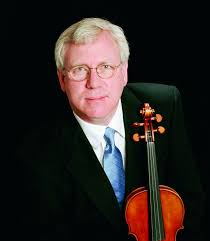Violin professor faces six years in plea deal
NewsThe University of Michigan violin professor Stephen Shipps entered a guilty plea yesterday for transporting a 16 year-old girl across state lines for sex. In a deal with prosecutors, a second charge involving the same victim was dropped.
Under the deal Shipps, 68, still faces up to six years behind bars, reduced from a possible 15 years. He will be sentenced in February.
Shipps, regarded as one of the leading US violin teachers outside New York, was a professor at Michigan’s School of Music, Theatre and Dance from 1989 until his suspension after repeated complaints in 2019.
The prosecutor said: ‘Shipps used his position of trust to sexually exploit a child. I commend the brave young woman who stepped forward and exposed Shipps’s abuse. This case proves that the passage of time, no matter how long, will not deter us from bringing to justice those who prey on our most vulnerable.’






Comments